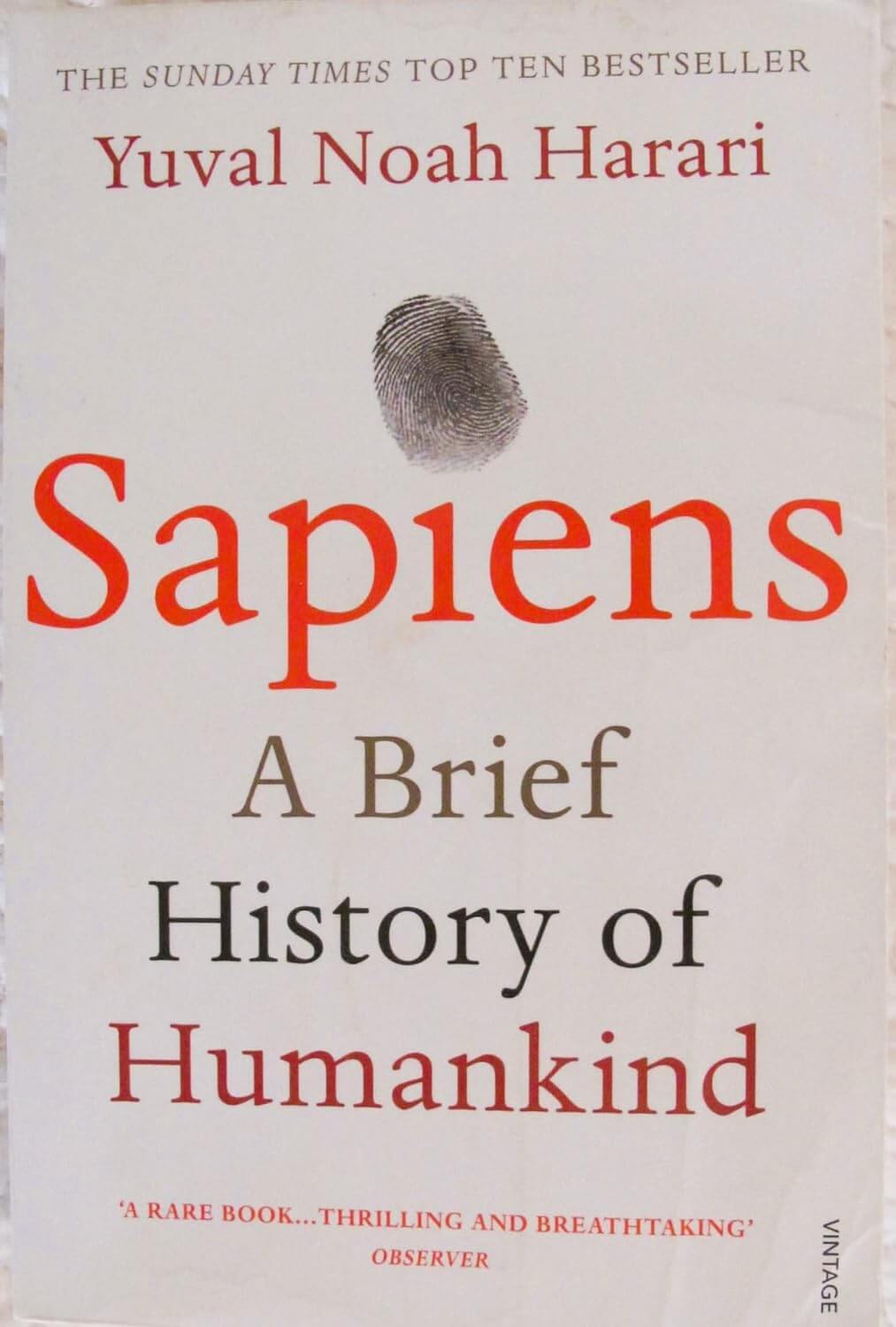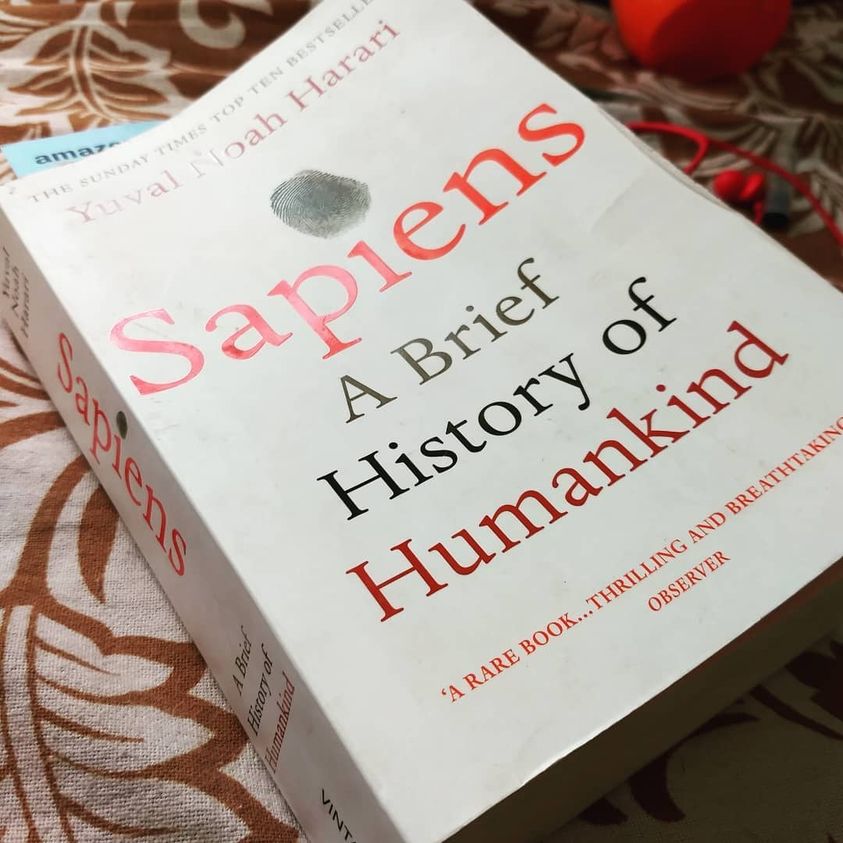Sapiens by Yuval Noah Harari
“Sapiens: A Brief History of Humankind” by Yuval Noah Harari is a thought-provoking exploration of the history and impact of Homo sapiens. Harari traces the journey of the human species from the emergence of modern humans to the present day, examining how cultural, economic, and technological developments have shaped our societies and the world we live in.
86 in stock
Purchase & earn 19 points!“Sapiens: A Brief History of Humankind” by Yuval Noah Harari is a groundbreaking work that delves into the history of Homo sapiens, offering readers a sweeping overview of how our species has evolved and transformed over millennia. Harari, a renowned historian and professor, provides an engaging and accessible account of the major milestones in human history, from the dawn of the cognitive revolution to the modern age.
In this compelling book, Harari explores how Homo sapiens came to dominate the planet, examining the cognitive, agricultural, and scientific revolutions that have shaped human societies. He delves into how these revolutions have influenced our cultures, economies, and political systems, and how they continue to impact our lives today.
Key Features of “Sapiens” by Yuval Noah Harari:
Broad Historical Scope: The book covers a vast expanse of human history, from the origins of our species to contemporary issues. Harari presents a broad overview that integrates anthropology, history, and economics to provide a comprehensive understanding of human development.
Cognitive Revolution: Harari discusses the cognitive revolution, which enabled Homo sapiens to develop complex language, create shared myths, and build larger social structures. This section explores how these cognitive advancements set the stage for humanity’s success.
Agricultural Revolution: The book examines the agricultural revolution and its profound impact on human societies. Harari explains how the shift from foraging to farming transformed social structures, economies, and the environment.
Scientific Revolution: Harari explores the scientific revolution and its role in shaping modern societies. He discusses how scientific advancements have led to technological progress, increased human knowledge, and changes in our worldview.
Impact on Society: “Sapiens” delves into the ways in which major historical developments have influenced human societies, including the rise of empires, the development of capitalism, and the formation of nation-states. Harari examines how these changes have shaped social structures and cultural norms.
Challenging Perspectives: Harari presents provocative ideas and challenges conventional wisdom about human history. He encourages readers to rethink common narratives about progress, happiness, and the nature of human societies.
Interdisciplinary Approach: The book draws on insights from various disciplines, including history, anthropology, and sociology. Harari’s interdisciplinary approach provides a rich and nuanced understanding of human evolution and development.
Accessible Writing: Harari’s writing is engaging and accessible, making complex historical and scientific concepts easy to understand. His clear and concise explanations, combined with compelling storytelling, make the book enjoyable for a wide audience.
Contemporary Relevance: “Sapiens” connects historical developments to contemporary issues, such as globalization, environmental challenges, and the future of humanity. Harari explores how our past continues to influence the present and what it means for our future.
Critical Acclaim: The book has received widespread acclaim for its insightful analysis, thought-provoking ideas, and engaging narrative. It has become a bestseller and has been translated into numerous languages, resonating with readers around the world.
Thought-Provoking Insights: Harari offers thought-provoking insights into human nature, societal development, and the impact of historical events on our lives. The book encourages readers to reflect on their place in history and the forces that have shaped the modern world.
“Sapiens: A Brief History of Humankind” by Yuval Noah Harari is an essential read for anyone interested in understanding the history and development of our species. Whether you’re a history enthusiast, a student of social sciences, or simply curious about the story of humanity, Harari’s book provides a compelling and accessible exploration of how Homo sapiens came to be who we are today. Discover the fascinating journey of our species and the forces that have shaped our world with “Sapiens.”
| Dimensions | 1.4 × 5.9 × 8.9 cm |
|---|---|
| Author | Yuval Noah Harari |
| Language | English |
| Type | Paperback Printed Book (Second Quality Copy) |
| ISBN/ISSN | 9780062316110 |
| Pages | 464 |
Be the first to review “Sapiens by Yuval Noah Harari” Cancel reply
Related products
Non-fiction
Self-Help
Self-Help
Non-fiction




















Reviews
There are no reviews yet.